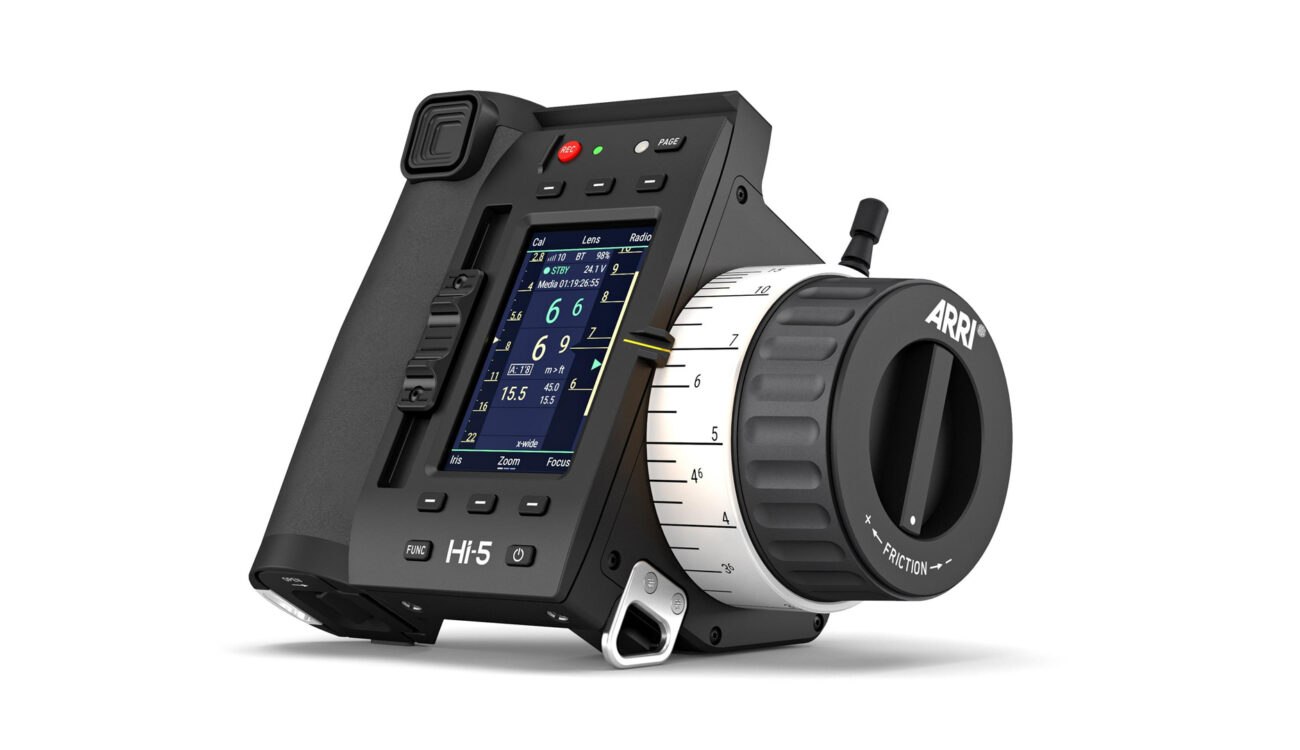
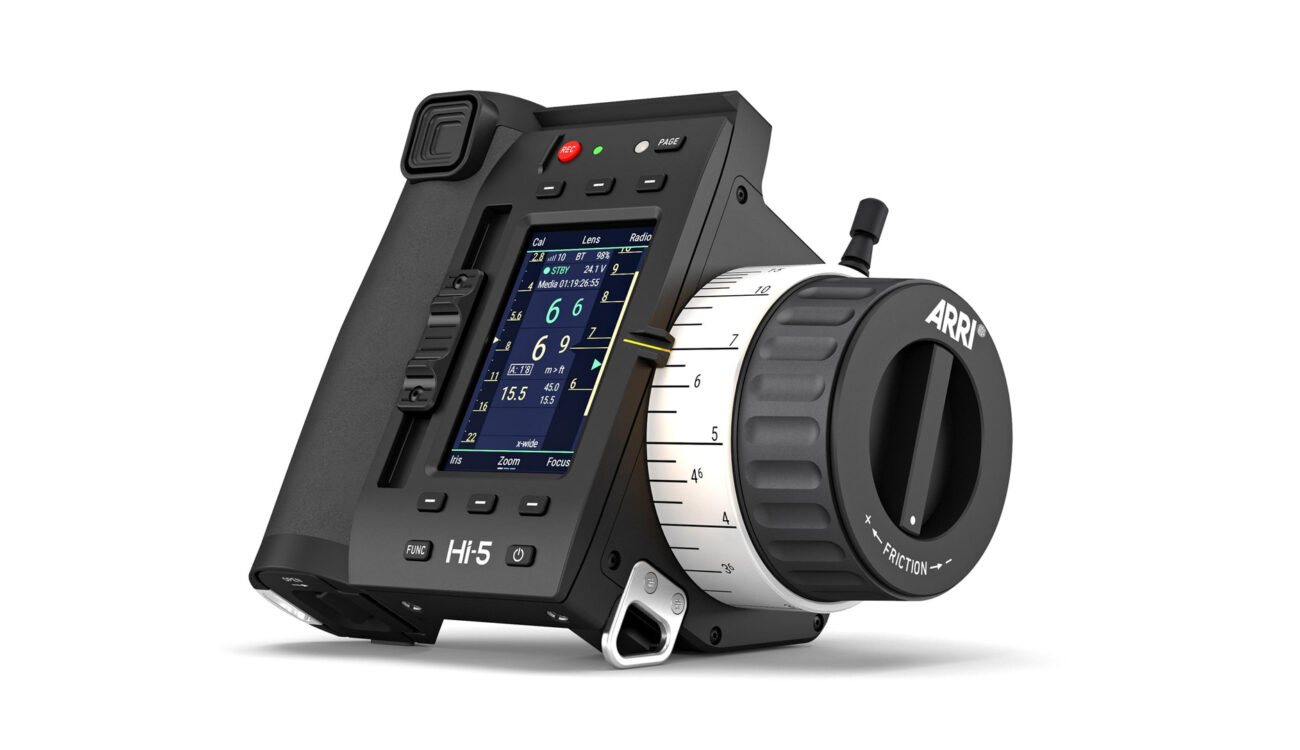
ARRI has just released a major software update – SUP 2.1 – for its flagship Hi-5 wireless lens control ecosystem. This improves system stability, adds support for the RF-900 long-range radio module and the cmotion Cinefade, and unlocks new features such as the ability to set a virtual T-stop and focal length for non-LDS lenses. Let’s take a quick look!
The latest major firmware update to ARRI’s top-tier lens control system dates back to March, when the company introduced 10 main new features for the Hi-5. After that, their cforce lens motors also got a boost with SUP 2.0.
Now, the Hi-5 is receiving another substantial update with SUP 2.1 and, in typical ARRI style, the German company released a YouTube video in which Sean Dooley extensively walks you through all the new features.
ARRI Hi-5 SUP 2.1 – new features
According to ARRI, the new firmware should bring improved radio communication between devices working in the Hi-5 ecosystem, including the main hand unit, the RIA-1 Radio Interface Adapter module, and the ZMU-4 Zoom Main Unit, which was announced earlier this year. To benefit from these stability improvements, all devices must be updated to the latest firmware version (SUP 2.1 for Hi-5 and RIA-1, SUP 1.1 for ZMU-4).
One of the biggest improvements of the Hi-5 system over its predecessors are its swappable radio modules. Upon launch, ARRI had announced three modules – two working in the 2.4 GHz band (RF-EMIP and RF-2400), plus a the long-range RF-900 that is designed for the 900MHz frequency band. The latter is now finally shipping, but is only certified for use in the USA and Canada, where the 900MHz band is open for public use. The RF-900 module supports network mode, which means that up to 3 hand units can be connected to a single RIA-1 for separate focus, iris, and zoom control.
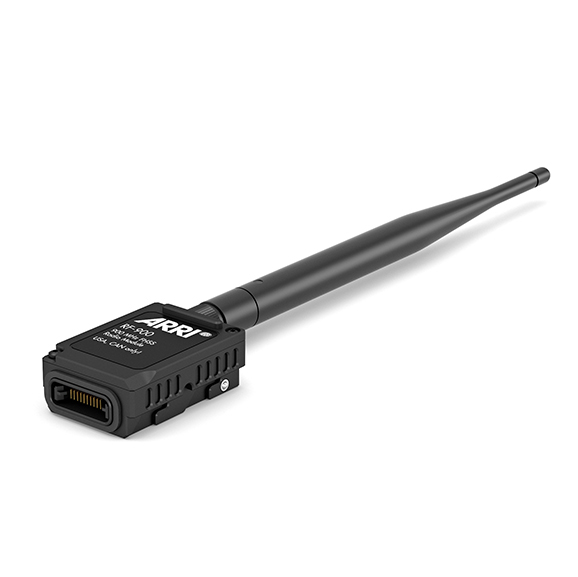
On top of that, SUP 2.1 allows you to control the cmotion Cinefade in either VariND, Rotapola, or Cinefade Effect mode – which allows you to change depth of field throughout a shot, while maintaining a constant exposure – directly via the Hi-5 hand unit. However, this option requires a paid license key which can be bought here.
If you’re working with lenses that don’t support the Lens Data System (LDS) protocol and only have a focus motor attached to the lens, you now have the ability to control a virtual T-stop via the iris slider and a virtual focal length with the force pad of the Hi-5. Essentially, this allows the device to perform depth of field calculations even when not receiving aperture and focal length data via LDS.
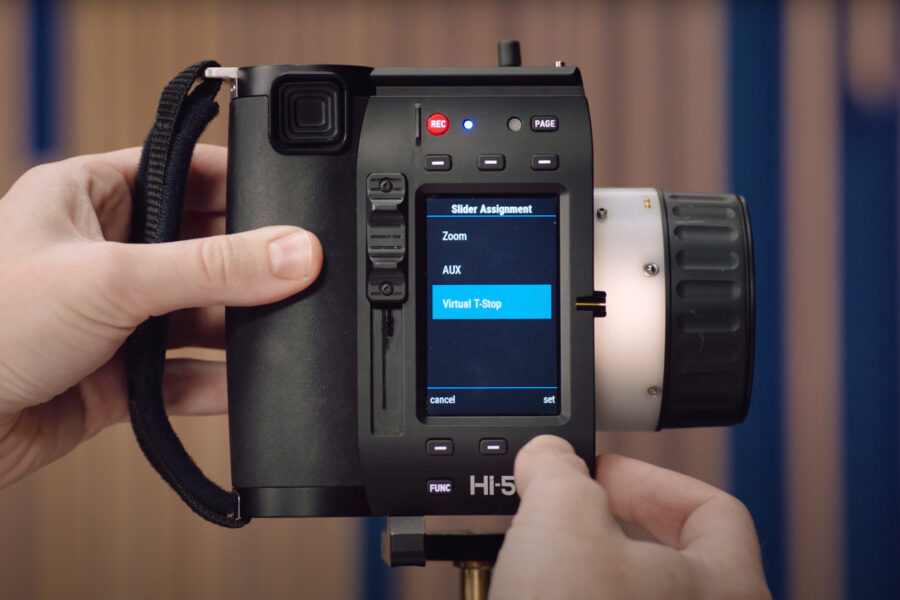
Another small improvement involves the control of a fourth auxiliary axis (on top of Focus, Iris, and Zoom motors), a function that is currently only supported when using a cforce mini RF motor. Indeed, a small AUX scale indicator – ranging from 0 up to 100% – has now been added to the main UI of the Hi-5 to help you monitor the position of the extra motor.
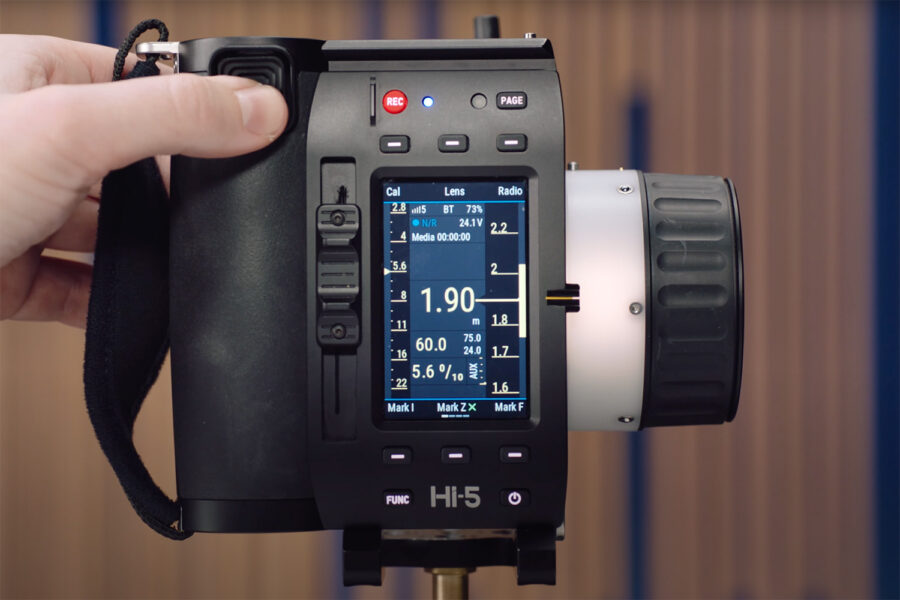
Additionally, a browser-style view has been added to make it easier to navigate through User Setup and Ring files. Furthermore, since the Hi-5 hand unit supports endless smart pre-marked focus rings (including imperial, metric, standard, left-handed, and reversed), you can now access your favourites by the press of a custom user button.
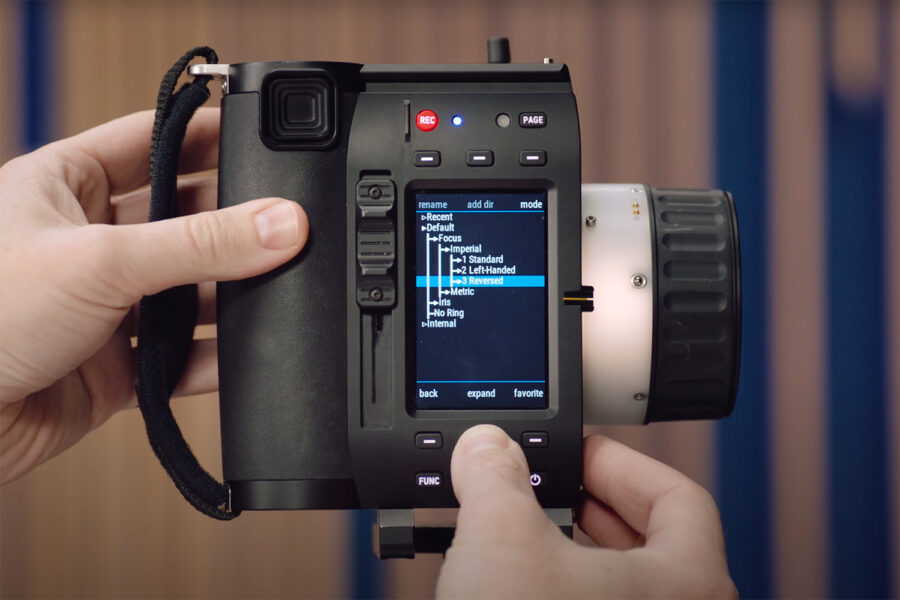
Lastly, ARRI also focused on small details to improve user experience. For example, you can now avoid entering a lens serial number when mapping a lens or skip the Favourites menu when selecting a lens file.
Price and availability
The new SUP 2.1 for ARRI Hi-5, SUP 2.1 for RIA-1, and SUP 1.1 for ZMU-4 are now available to download for free from ARRI’s website.
Also, if you have an order for the ARRI RF-900 Radio Module, then you should receive it in the next couple of weeks.
Do you often use the high-end ARRI Hi-5 system on set? What do you think of this new set of features? Let us know your thoughts in the comment section below!






